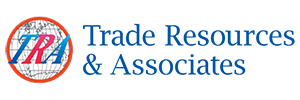Customs & Border Protection (CBP) detained 1,469 shipments of merchandise from October 1, 2020 and September 30, 2021, according to the CBP Forced Labor Statistics report, published September 30, 2021.
The reason CBP detained the imports is to prevent merchandise, produced in whole or in part in a foreign country, using forced labor from entering the United States.
CBP’s website defines forced labor “as all work or service which is exacted from any person under the menace of any penalty for its nonperformance and for which the worker does not offer work or service voluntarily.”
CBP implemented Section 307 of the Tariff Act of 1930 (19 U.S.C. §1307) through issuance of Withhold Release Orders (WRO). Any goods subject to a WRO are “withheld” from release and prohibited from entering the United States. CBP provided guidance by directing importers to check the Withhold Release Orders and Findings List to learn what products are subject to WRO.
CBP stresses that the importer is responsible to perform a due diligence analysis of its supply chain activities related to the manufacturing of its imported merchandise. CBP has zero tolerance about products made with forced labor, which means that no item in the product can be made by forced labor.
During a CBP outreach to importers and customs brokers in November of 2021, Mr. John P. Leonard, Deputy Executive Assistant Commissioner of the Office of Trade said if an importer’s goods are detained/and or seized, CBP expects the importer to supply information about the import from the point of manufacture through the distribution chain to demonstrate that the goods were not involved in forced labor. Further he said, there are no checklists available. Rather, the importer must explain to CBP how the imported product is sourced and do a deep dive of its supply chain.
CBP’s website provides guidance to importers to inform them about the WRO process. There are five steps to the WRO process:

Some examples of products that have been detained due to suspected forced labor violations are wearing apparel and tomatoes. CBP’s website provides previous Section 307 petitions involving product manufactured with forced labor that include cotton from Uzbekistan, cotton from Turkmenistan, palm oil from Malaysia and cocoa from Côte d’Ivoire.
During the outreach, Mr. Leonard gave an example of a goods subject to WRO where the importer reviewed the supply chain and took corrective actions on the merchandise made with forced labor. CBP identified a disposable gloves manufacturer that was found to manufacture the imported gloves with forced labor. The importer and supplier remediated the issue by paying workers. Therefore, CBP allowed the trade flow to resume. Mr. Leonard said this is the way the system should work.
